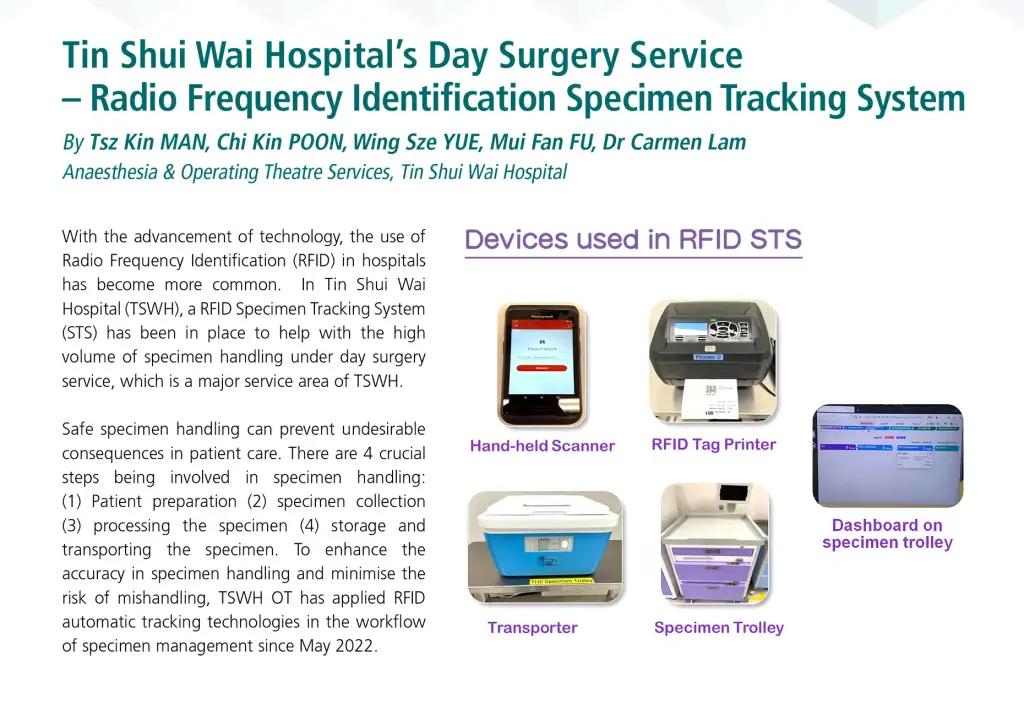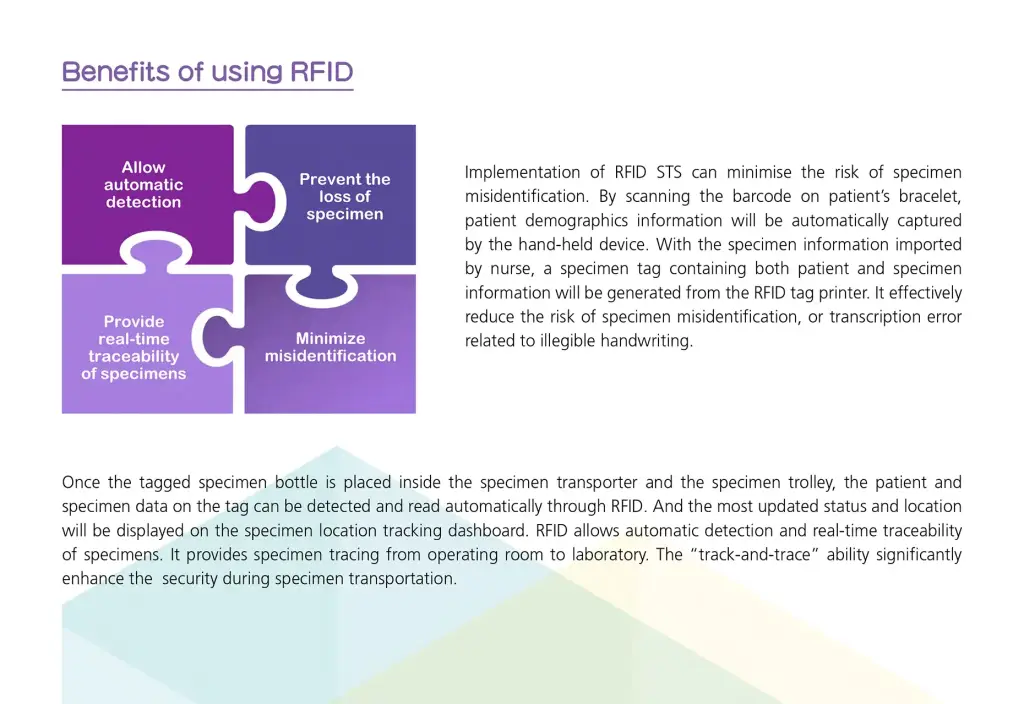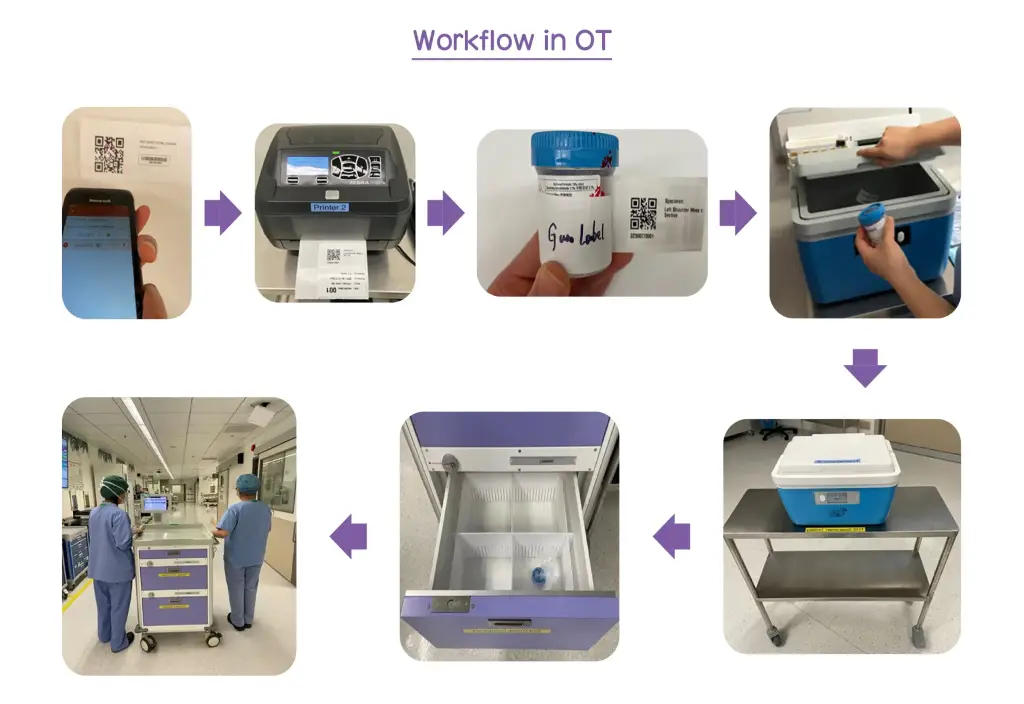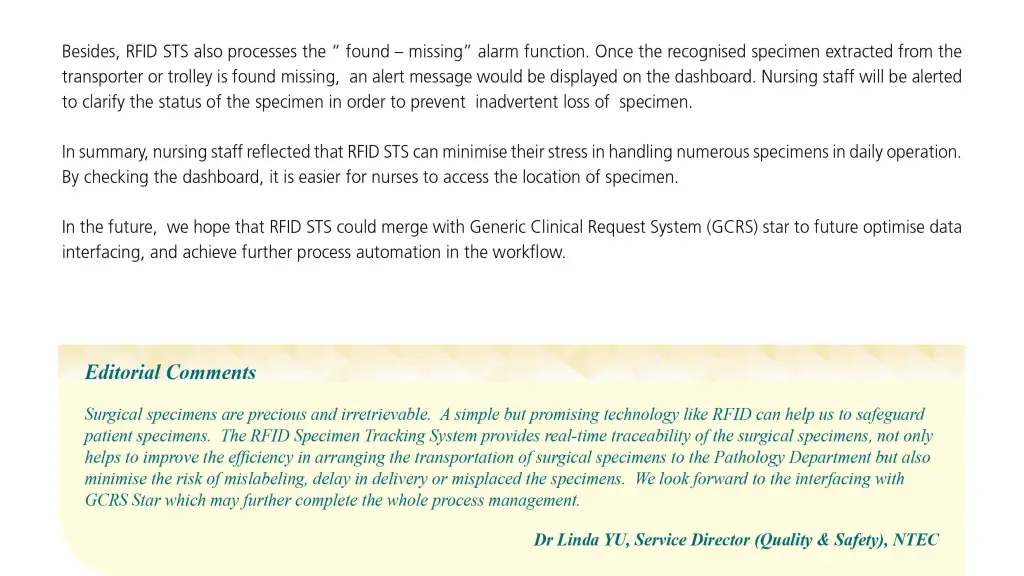We are proud to highlight a successful implementation of our Radio Frequency Identification (RFID) Specimen Tracking System (STS) at Tin Shui Wai Hospital (TSWH), featured in the publication by the Hong Kong Hospital Authority.


Enhancing Patient Safety and Workflow Efficiency in Day Surgery
With the increasing volume of specimen handling in TSWH’s Day Surgery Service, ensuring safe and accurate specimen management is critical to patient care. The specimen handling process involves four crucial steps:
- Patient preparation
- Specimen collection
- Specimen processing
- Specimen storage and transportation
To minimise risks such as misidentification and mishandling, TSWH’s Operating Theatre adopted our RFID STS in May 2022, integrating automatic tracking technology into their specimen management workflow.
How the RFID Specimen Tracking System Works
Our system begins by scanning the barcode on the patient’s bracelet, automatically capturing patient demographic information via a handheld device. Nurses then input specimen details, and an RFID tag containing both patient and specimen data is printed and attached to the specimen bottle. This process significantly reduces errors caused by mislabeling or illegible handwriting.

Once tagged, specimens placed inside transporters and trolleys are automatically detected by RFID readers. The system updates the specimen’s status and location in real time on a tracking dashboard, providing end-to-end traceability from the operating room to the laboratory. This “track-and-trace” capability greatly enhances specimen security during transportation.
Advanced Features for Risk Mitigation
The RFID STS also includes a “found-missing” alarm function. If a tagged specimen is removed but not accounted for, an alert is triggered on the dashboard, prompting nursing staff to investigate immediately and prevent specimen loss.
Positive Impact and Future Integration

Nursing staff report reduced stress and improved confidence in managing numerous specimens daily, thanks to easy access to real-time location data via the dashboard. Looking ahead, there are plans to integrate the RFID STS with the Generic Clinical Request System — Specimen Tracking & Acknowledgement Record (GCRS-STAR), further optimising data management and workflow efficiency.
Professional Insight
Dr Linda Yu, Service Director (Quality & Safety), New Territories East Cluster, highlights the importance of reliable specimen management in healthcare:
“Surgical specimens are precious and irretrievable. Technologies like RFID provide real-time traceability, improving the efficiency of specimen transportation and reducing risks such as mislabeling or delays. Integration with systems like GCRS Star could further enhance process management.”
At Howood International, we are dedicated to delivering innovative IoT solutions that enhance healthcare operations and patient safety. Our RFID-based Specimen Tracking System at Tin Shui Wai Hospital exemplifies our commitment to driving digital transformation in healthcare settings.



